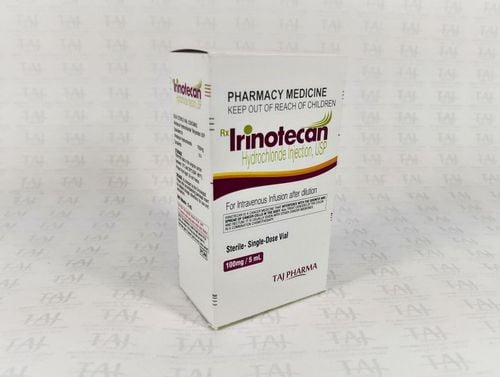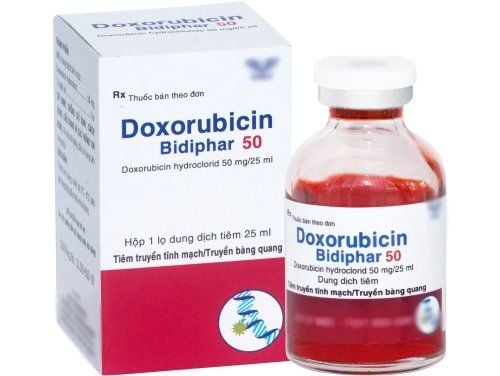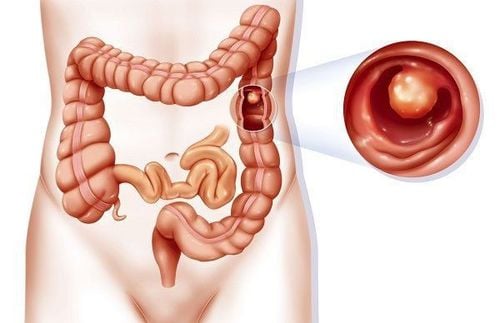This is an automatically translated article.
The article is professionally consulted by Master, Doctor Nguyen Thai Binh - Gastroenterologist - Department of General Surgery - Vinmec Ha Long International General Hospital.Colorectal polyps are benign tumors, while colorectal cancer are malignant tumors that develop in the colon. What Is The Relationship Between Polyps and Colorectal Cancer Really?
1. What are polyps and colorectal cancer?
Colorectal polyps are growths on the lining of the colon. Most polyps are not harmful. However, some colorectal polyps can turn into colorectal cancer. It is for this reason that when colorectal polyps are detected, the doctor will order them to be removed immediately.
Colorectal cancer is one of the leading causes of death for both men and women. Cancer can start in the lining of the large intestine, and tumors can also start in the lining of the rectum, the last part of the digestive tract.
Colorectal cancers are mostly “silent” tumors, they grow slowly and you may not notice any symptoms until the tumors are large.
But you can take steps to prevent colorectal cancer, and if caught early you can be cured. It's important to have regular screenings for cancer or precancerous factors, especially if you're at higher-than-normal risk.
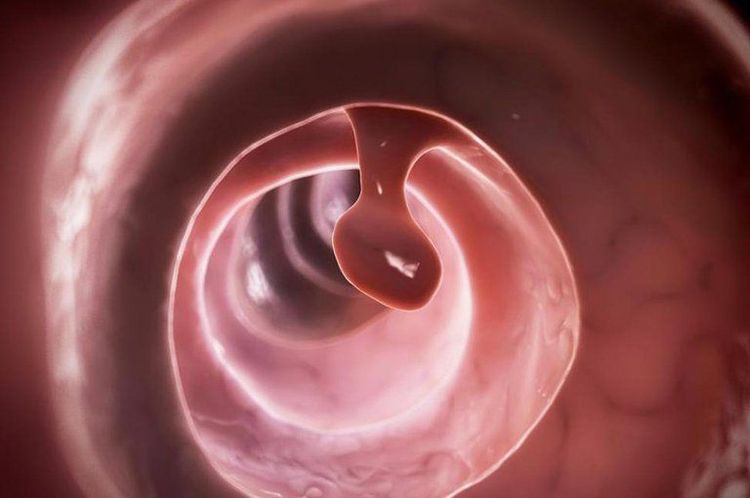
2. Types of colorectal cancer
There are many different classifications of colorectal cancer, the classification based on the location of onset divides colorectal cancer into the following types:
Adenocarcinoma : this is a common type of colorectal cancer the most common, accounting for 96% of cases. Cancer cells develop from cells that make mucus in the colon and rectum. Carcinoid tumors: cancer cells that originate in hormone-producing cells, this is a special type of cancer. Gastrointestinal stromal tumor: Tumor that forms in the cells of the colon wall. Lymphoma: Cancer cells that develop from cells of the immune system. Sarcoma: Cancer cells that develop from connective tissues such as blood vessels or the muscular layers of the colon.
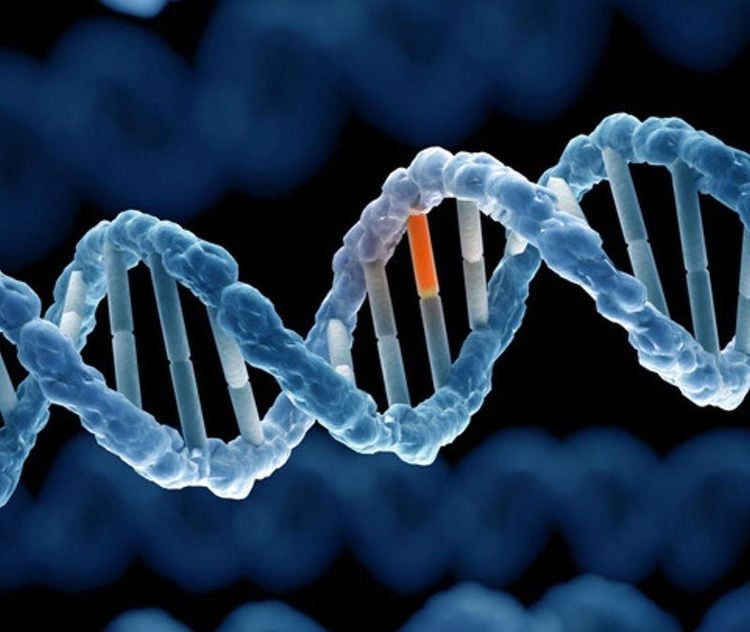
3. Causes of colorectal cancer
Nearly all colorectal cancers start as a polyp - tumors that grow on the inner surface of the colon. Although by nature polyps are usually not cancerous.
The most common types of colorectal polyps include:
Hyperplastic and inflammatory polyps: these polyps are not usually cancerous. But large hyperplastic polyps, especially on the right side of the colon, can cause a more serious problem and your doctor needs to remove them. Adenomas or adenomatous polyps: are precancerous polyps. Most colorectal cancers originate from this type. However, not all adenoma polyps will become harmful. The larger the adenoma polyps, the more likely they are to turn cancerous.
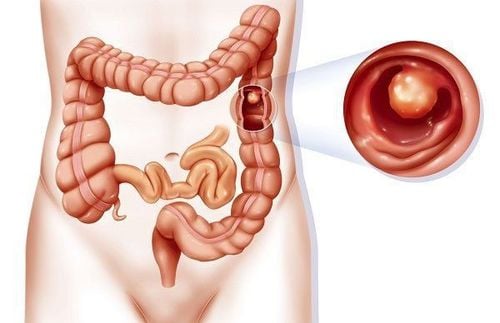
4. Risk factors for colorectal cancer
Anyone can get colorectal cancer. But the disease becomes more common in people over the age of 50. Factors that can increase the risk of colorectal cancer include:
Personal or family history of colorectal cancer or colorectal polyps; Eat a lot of red meat and processed meat; Inflammatory bowel disease such as Crohn's disease or ulcerative colitis; Genetic diseases such as adrenal polyps and colorectal cancer; Fat; Smoke; Laziness to exercise; Heavy alcohol use; Type 2 diabetes ; Breast cancer ; Ovarian or uterine cancer diagnosed before age 50. Colorectal polyps are likely to contain cancer cells or have a higher risk of cancer if they have the following characteristics:
Polyps larger than 1cm; There are more than two polyps; Polyps with signs of dysplasia.

5. Symptoms of colorectal cancer
You may not notice any signs of colorectal cancer until they are large enough. You may then have the following symptoms:
Constipation or diarrhea in defecation; After a bowel movement there is a feeling that there is still something in the colon, not really empty; Bleeding from the rectum; Blood on or in the stool; Smaller or thinner stools than usual; Abdominal discomfort; Stomach cramps; Weight loss with no apparent cause; Abnormally low red blood cell count (anemia); Weakness or fatigue; A tumor in the abdomen or rectum.

6. Diagnosis of polyps or colorectal cancer
To diagnose polyps or colorectal cancer, your doctor needs to do one or more of the following:
Rectal exam: when you suspect you have polyps or colorectal cancer, the first thing your doctor should do it is necessary to conduct a rectal examination, looking for abnormal masses if present; Colonoscopy: This is the basic screening test most doctors use. This method allows your doctor to see your entire rectum and colon. If polyps are found, doctors can remove them and send them for testing; Sigmoidoscopy: This is a method that allows the doctor to see the rectum and the last part of the colon. This method also allows the doctor to take a biopsy sample if needed. Stool DNA: This test looks for certain gene changes that could be a sign of colon cancer. CT scan: This method allows visualization of the colon but is less invasive than other tests. However, if a polyp is found on the x-ray, you still need to have a colonoscopy. Contrast X-ray: This method allows to detect abnormalities in the colon. If there are abnormalities, you will also need to have an endoscopy. Other imaging tests: An MRI or ultrasound can help your doctor get a better look at your organs. Tumors can cause bleeding in such small amounts that only special tests can find them. This condition is called silent bleeding, which means you may not be able to see the blood with the naked eye. Tests that can look for blood in the stool include:
Fecal immunoassay (FIT): a test based on a reaction to part of hemoglobin - a protein in red blood cells. Stool blood test (FOBT): This test uses a chemical to look for the presence of blood in the stool.
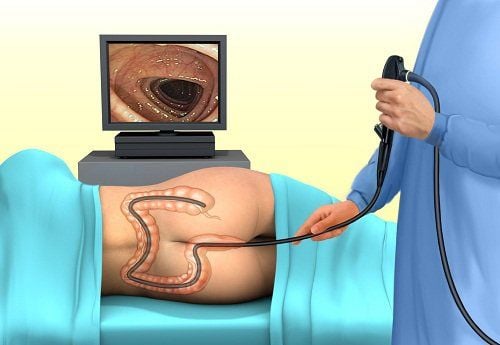
7. Stages of Colorectal Cancer
Stage 0: cancer has not gone through the inner layer of the colon or rectum; Stage I: The cancer has grown to the muscles of the colon or rectum; Stage IIA: Cancer has spread through the colon or rectal wall; Stage IIB: Cancer has grown to the lining of the abdomen (peritoneum); Stage IIC: cancer has spread through the colon or rectal wall and into nearby tissues; Stage IIIA: cancer has spread to ≤ 3 lymph nodes or to tissues around the colon or rectum; Stage IIIB: Cancer cells have grown through your bowel wall or into nearby organs. Cancer cells have also spread to ≤ 3 lymph nodes or to surrounding tissues; Stage IIIC: Cancer has spread to ≥ 4 lymph nodes; Stage IVA: the cancer has spread to a more distant part of your body such as your liver or lungs; Stage IVB: cancer cells have spread to many parts of your body; Stage IVC: Cancer cells have grown in the lining of your abdomen and may have reached lymph nodes or more distant organs.
8. Treatment of colorectal cancer
Treatment for colorectal cancer will depend on the stage of the cancer and the organs involved. The patient may be treated with one or more of the following methods:
Surgery: if the small tumor has not spread, the doctor may remove it during laparoscopy. If the cancer has spread, you may need surgery to remove part of your large intestine; Radiation therapy: using X-rays or powerful radioactive particles to kill cancer cells; Chemotherapy: using drugs to kill cancer cells or stop them from growing; Targeted therapy: the use of drugs that target specific factors in cancer cells such as genes or proteins to kill or keep them from growing; Immunotherapy: This is biological therapy, a drug that can boost your immune system to help your body fight off cancer.
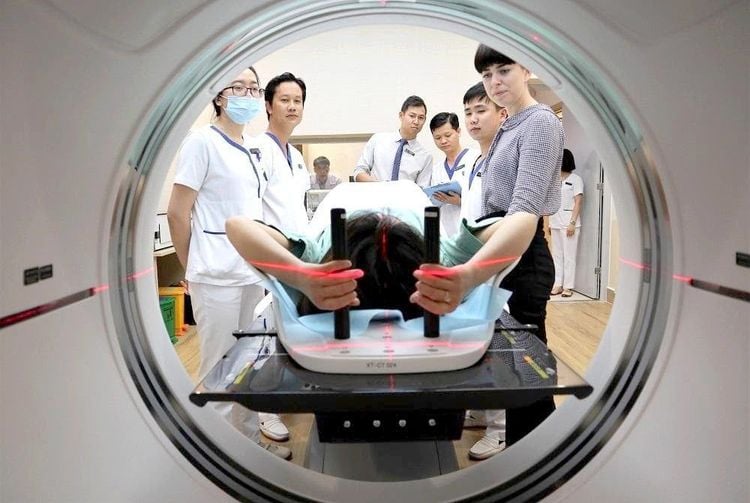
9. Prevention of colorectal cancer
A healthy lifestyle is important in preventing cancer of any kind.
Exercise regularly and keep a healthy weight; Eat a diet low in red meat and high in fruits and vegetables; No smoking; These are simple things to do to help prevent colorectal cancer.

Along with that, screening is very important. The American Cancer Society recommends that people get regular screenings between the ages of 45 and 75 if they are at moderate risk for colorectal cancer. This means you have no symptoms and no family members have colorectal polyps or cancer or inflammatory bowel disease.
Screening for colorectal cancer includes:
A stool blood test once a year; Stool DNA test every 3 years; Sigmoidoscopy every 5 years; CT scan every 5 years; Colonoscopy every 10 years; If you have one or more colorectal cancer risk factors, you may need to start screening at a younger age and get tested more often. =
Reference source: webmd.com
Please dial HOTLINE for more information or register for an appointment HERE. Download MyVinmec app to make appointments faster and to manage your bookings easily.





